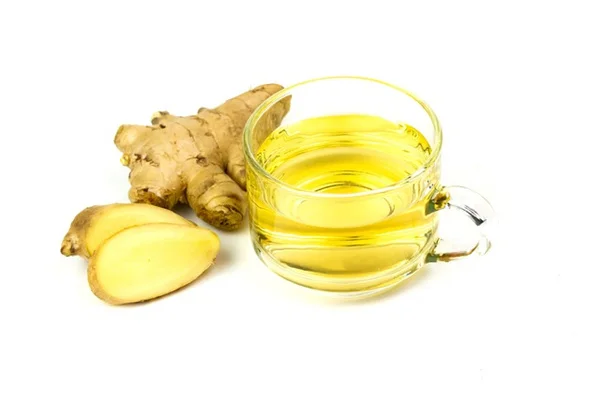What are the CDC's new RSV protection guidelines for infants? The answer is simple: The CDC now recommends prioritizing Beyfortus, a monoclonal antibody shot, for high-risk infants during RSV season. If your baby weighs over 11 pounds and is at risk for severe RSV complications, they should be first in line for the 100mg dose. For smaller babies under 11 pounds, the 50mg dose recommendations haven't changed. But here's what's really exciting - we finally have multiple ways to protect our littlest ones from this dangerous virus! Whether it's through mom getting vaccinated during pregnancy or baby receiving the antibody shot after birth, you've got options. Let me break down what this means for your family and how to navigate these new protections.
E.g. :6 Dangerous Health Risks That Spike When Temperatures Rise
- 1、Understanding the CDC's New RSV Protection Guidelines
- 2、Your Options for RSV Protection
- 3、Making the Right Choice for Your Family
- 4、How These Options Stack Up
- 5、Looking Ahead at RSV Prevention
- 6、Expanding Your Knowledge About RSV Protection
- 7、Beyond Medicine: Practical Protection Tips
- 8、Addressing Common Parent Concerns
- 9、The Bigger Picture of Infant Health
- 10、Empowering Parents With Knowledge
- 11、FAQs
Understanding the CDC's New RSV Protection Guidelines
Why This Matters for Your Family
Hey there! Let me break down what's happening with RSV protection for infants. The CDC just dropped new recommendations about Beyfortus, this awesome monoclonal antibody treatment that's like a shield for babies against RSV. Now, I know what you're thinking - "Another medical thing to worry about?" But trust me, this is actually great news!
Here's the deal: RSV (Respiratory Syncytial Virus) might sound like just another cold to us adults, but for tiny humans under 6 months? It can be serious business. The CDC wants doctors to prioritize giving Beyfortus to babies who would have the toughest time fighting RSV. Think of it like giving your little one a suit of armor before battle season starts!
The Current Medication Situation
Now, I won't sugarcoat it - there's been some shortage issues. As of October 23, the CDC put out an advisory because we need to make sure the available doses go to babies who need them most. Here's how they're breaking it down:
| Baby's Weight | Dose Amount | Priority Level |
|---|---|---|
| Under 11 lbs | 50 mg | Standard recommendation |
| Over 11 lbs (high risk) | 100 mg | Top priority |
And here's a fun fact - did you know this isn't actually a vaccine? It's like borrowing someone else's immune system superpowers! The shot gives babies ready-made antibodies to fight RSV immediately, no waiting for their own immune system to gear up.
Your Options for RSV Protection
 Photos provided by pixabay
Photos provided by pixabay
The Monoclonal Antibody Route
Let's talk about Beyfortus specifically. The American Academy of Pediatrics (AAP) gave this treatment two thumbs up earlier this summer. They recommend it for:
• All babies under 8 months heading into RSV season
• High-risk toddlers (8-19 months) entering their second RSV season
Now, I know you're wondering - "But what about side effects?" Good question! The most common things parents might notice are a little rash or some redness where the shot went in. Pretty mild compared to dealing with RSV, right?
The Pregnancy Vaccine Alternative
Here's another cool option that came out in August - the Abrysvo vaccine for pregnant people. When mom gets vaccinated between 32-36 weeks, she passes protective antibodies to baby. It's like mailing reinforcements through the umbilical cord!
A clinical study showed this approach reduces severe RSV risk by 82% in baby's first 3 months, and still 69% protection at 6 months. Not too shabby! Plus, it's also approved for adults over 60 - grandma and grandpa can get protected too!
Making the Right Choice for Your Family
Who Really Needs the Extra Protection?
Let's be real - parenting is all about weighing risks and benefits. Dr. Sara Siddiqui, a pediatrician at NYU, told me that certain babies are especially vulnerable:
"Preemies, infants under 6 months, and babies with heart/lung conditions are like tiny warriors facing RSV without their full armor," she explained. For these little ones, that 81% protection against hospitalization from Beyfortus could be a game-changer.
But here's something that might surprise you - even healthy full-term babies can benefit. RSV doesn't discriminate, and about 2-3% of all infants under 12 months get hospitalized with it each year. That's why the AAP recommends it broadly!
 Photos provided by pixabay
Photos provided by pixabay
The Monoclonal Antibody Route
Alright, let's talk dollars and sense. The shot runs about $495 privately or $395 through the Vaccines for Children program. But will insurance cover it? That's the million-dollar question (or more accurately, the $495 question).
Dr. Rebecca Fisk from Lenox Hill Hospital shared: "We're still waiting on details about distribution and coverage from private insurers." The VFC program helps for Medicaid-eligible or uninsured kids, but if you're somewhere in between? Might want to start that conversation with your pediatrician now!
How These Options Stack Up
Monoclonal Antibody vs. Vaccine - What's the Difference?
You might be scratching your head - "Aren't these basically the same thing?" Nope! Let me explain it like you're a seventh grader (no offense):
• Beyfortus (monoclonal antibody): Instant protection that lasts about 5 months. Like borrowing a friend's winter coat for the season.
• Abrysvo (vaccine): Teaches mom's immune system to make antibodies that baby borrows. More like getting knitting lessons so you can make your own sweaters!
Here's the kicker - right now, babies can't get the vaccine directly. The options are either mom gets vaccinated during pregnancy, or baby gets the antibody shot after birth. Two different paths to the same destination!
Real-World Protection Strategies
Beyond medical interventions, there are everyday things we can all do to protect our littlest family members:
1. Wash those hands like you're prepping for surgery!
2. Keep sick visitors at bay (yes, even Aunt Karen with the "just allergies")
3. Consider avoiding crowded places during peak RSV season
Remember what they say - it takes a village to raise a child, and apparently it takes that same village to keep their hands clean and germs away!
Looking Ahead at RSV Prevention
 Photos provided by pixabay
Photos provided by pixabay
The Monoclonal Antibody Route
This year is really groundbreaking for RSV prevention. For the first time ever, we've got multiple ways to protect babies from day one. The CDC's new guidance helps ensure these tools get to the families who need them most during this shortage.
And get this - researchers are already working on even more options. The future might bring longer-lasting antibodies, vaccines for infants, or maybe even universal RSV protection. Science never sleeps!
Having the Conversation With Your Pediatrician
Here's my advice - don't wait until RSV season is in full swing to talk about this. Make it part of your next well-baby visit. Ask:
"What's the best RSV protection strategy for my child based on their specific situation?"
"How can we plan ahead given the current supply issues?"
"What should I watch for in terms of RSV symptoms?"
Your pediatrician is like your personal RSV strategist - they'll help you navigate these new options and make the best call for your family. And who knows? Maybe by next RSV season, we'll have even more tools in our parenting toolbox!
Expanding Your Knowledge About RSV Protection
The Science Behind Monoclonal Antibodies
You know how superheroes have special powers? Well, monoclonal antibodies are kind of like that for babies' immune systems! These lab-made proteins specifically target RSV viruses and neutralize them before they can cause serious harm. What makes them so effective is that they bypass the need for the baby's immune system to recognize and respond to the virus - the protection is immediate!
Here's a cool comparison: If regular vaccines are like teaching someone to fish (training the immune system), monoclonal antibodies are like giving someone a fully cooked meal (instant protection). Both approaches have their place, but when dealing with vulnerable infants, that immediate protection can be lifesaving.
Understanding RSV Season Patterns
Did you realize RSV doesn't strike equally throughout the year? In most parts of the U.S., we see predictable seasonal patterns:
| Region | Typical RSV Season Start | Peak Months |
|---|---|---|
| Southern States | Early October | November-January |
| Northern States | Late October | December-February |
| Florida | July | August-October |
This variation means timing your baby's protection is crucial. Getting the monoclonal antibody shot a few weeks before RSV typically hits your area gives the best coverage. Pediatricians in Florida might recommend it as early as June, while those in Minnesota might wait until September.
Beyond Medicine: Practical Protection Tips
Creating a Germ-Free Zone at Home
Let's talk about making your home safer during RSV season. You'd be surprised how many common household items become germ highways! Here's what I recommend:
• Designate a "baby station" with clean blankets and toys that only get handled after handwashing
• Use disinfectant wipes on high-touch surfaces like doorknobs and light switches daily
• Consider having guests remove shoes at the door (they track in all sorts of nasties!)
Now, I'm not suggesting you turn your home into a sterile lab - that's impossible with kids anyway! But small changes can significantly reduce the germ load your newborn faces.
The Daycare Dilemma
If you have older kids in daycare or school, you know they're basically walking petri dishes. Here's the reality - siblings account for about 40% of RSV transmissions to infants. But before you consider homeschooling your kindergartener, there are practical compromises:
• Teach older kids proper handwashing with fun songs (20 seconds is key!)
• Have them change clothes when coming home from school
• Create a "no face touching" rule with baby (hard, I know, but worth trying)
Remember, complete isolation isn't practical or healthy for your family. It's about finding that sweet spot between protection and normal life.
Addressing Common Parent Concerns
Safety Profile of New Treatments
I get it - when something's new, it's natural to wonder "Is this really safe for my baby?" The clinical trials for these RSV prevention methods were extensive:
• Beyfortus was tested in over 4,000 infants with excellent safety results
• The maternal vaccine trials included nearly 7,000 pregnant participants
• Both options showed similar side effect profiles to placebo groups
What does this mean for you? While no medical intervention is 100% risk-free, the safety data should give parents confidence. The potential benefits far outweigh the minimal risks for most families.
Navigating Mixed Messaging
Ever feel like you're getting whiplash from all the changing health recommendations? You're not alone! Here's why RSV guidance seems to shift:
1. New science emerges rapidly - what we knew last year might be outdated now
2. Real-world supply issues force temporary adjustments
3. Different organizations (CDC, AAP, etc.) sometimes have slightly different perspectives
The key is finding a pediatrician you trust to interpret these updates for your specific situation. They can help cut through the noise and give you personalized advice.
The Bigger Picture of Infant Health
How RSV Fits Into Overall Wellness
Let's zoom out for a second. RSV protection isn't just about avoiding one virus - it's part of building a strong foundation for your baby's health. Serious RSV infections early in life have been linked to:
• Increased risk of developing asthma
• Higher chances of recurrent wheezing
• More frequent respiratory infections in childhood
By preventing severe RSV early on, we might actually be setting kids up for healthier respiratory systems long-term. Now that's what I call a good investment!
The Economic Impact of Prevention
Ever wonder why insurance companies should cover these preventive measures? Let's look at the numbers:
• Average RSV hospitalization costs: $15,000-$20,000 per child
• Lost work days for parents: 5-10 days per hospitalization
• Follow-up care costs: $500-$2,000 in many cases
When you compare these costs to the $400-$500 price tag of prevention, the math becomes pretty clear. Preventing just one hospitalization pays for dozens of preventive doses! This is why experts predict insurers will eventually provide broad coverage.
Empowering Parents With Knowledge
Recognizing Early RSV Symptoms
Even with prevention, it's smart to know what to watch for. Early RSV symptoms can look like a regular cold at first, but here are the red flags:
• Fast breathing (more than 60 breaths per minute)
• Wheezing or grunting sounds
• Nostrils flaring with each breath
• Blue tint around lips or fingernails
If you notice these signs, don't wait - call your pediatrician immediately. Early intervention can prevent a mild case from becoming severe.
Building Your Support Network
Parenting a newborn during RSV season can feel isolating, but you're not alone! Consider connecting with:
• Local parent groups focused on infant health
• Online communities sharing RSV prevention tips
• Your pediatrician's office for educational resources
Remember, every parent goes through this learning curve. The fact that you're reading this shows you're already doing great!
E.g. :FDA Approves New Drug to Prevent RSV in Babies and Toddlers ...
FAQs
Q: What exactly is Beyfortus and how does it protect against RSV?
A: Beyfortus is like giving your baby a temporary immune system boost specifically designed to fight RSV. Unlike vaccines that teach the body to make its own protection, this monoclonal antibody treatment provides ready-made defenses. Think of it as borrowing a friend's winter coat instead of knitting your own! The shot delivers lab-made proteins that mimic natural antibodies, offering immediate protection that lasts about 5 months - perfect for getting through RSV season. According to studies, it's about 81% effective at preventing hospitalizations. The best part? It's just one quick intramuscular injection, with only mild side effects like occasional rash or injection site reactions. We pediatricians are thrilled to finally have this tool in our prevention toolkit!
Q: How does the new RSV vaccine for pregnant women differ from the monoclonal antibody shot?
A: Here's the key difference: the Abrysvo vaccine helps mom's body create RSV-fighting antibodies that then pass to baby through the placenta, while Beyfortus gives antibodies directly to the infant. It's like comparing home cooking to takeout - both get you fed, but in different ways! The vaccine is given between 32-36 weeks of pregnancy and provides protection starting from birth, reducing severe RSV risk by 82% in the first 3 months. The antibody shot, given after birth, offers more immediate and concentrated protection. We're lucky to have both options now, though currently babies can't receive the vaccine directly - it's either mom gets vaccinated during pregnancy or baby gets the antibody treatment.
Q: Which infants are considered high-risk for severe RSV complications?
A: Some babies need extra protection more than others. According to pediatric experts, the highest risk groups include: premature infants (especially those who needed NICU care), babies under 6 months old, and children with chronic lung disease or congenital heart conditions. Even healthy full-term babies can benefit though - about 2-3% of all infants under 1 year get hospitalized with RSV annually. That's why the American Academy of Pediatrics recommends Beyfortus for all infants under 8 months entering RSV season, plus high-risk toddlers up to 19 months. If you're unsure where your child falls, have a chat with your pediatrician - they'll help assess your baby's specific risk factors.
Q: Will insurance cover the cost of Beyfortus for my infant?
A: This is the million-dollar question (or more accurately, the $495 question). Here's what we know: the shot costs about $495 privately or $395 through the Vaccines for Children program (for Medicaid-eligible or uninsured kids). Private insurance coverage details are still rolling out, so you'll want to check with your specific plan. Some good news - the CDC's prioritization guidelines may help insurance companies decide who gets coverage first during this shortage. My advice? Start the conversation with your pediatrician early, and don't wait until RSV season peaks to ask about coverage options. Many offices are still figuring out the logistics themselves, so patience and persistence will be key!
Q: Besides medical treatments, how else can I protect my baby from RSV?
A: Old-school prevention methods still matter even with these new medical options! Here's my top three tips: 1) Wash hands like you're prepping for surgery - seriously, soap and water are your first line of defense. 2) Create a "no sick visitors" rule - yes, even for relatives with "just allergies." 3) Avoid crowded places during peak RSV season (typically fall through spring). Remember that RSV spreads through droplets when people cough or sneeze, so keeping distance from sick folks helps. Also, make sure anyone handling your baby isn't smoking - secondhand smoke increases RSV risks. Combining these everyday precautions with the new medical protections gives your baby the best possible defense team!







